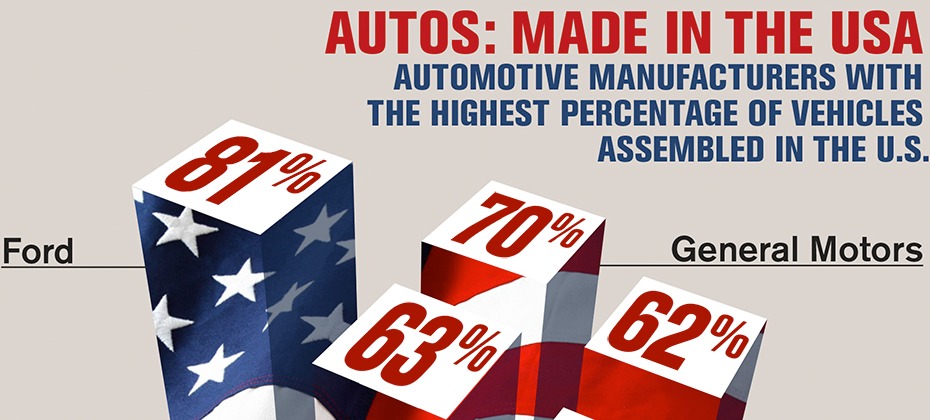
This feature article from the Harvard Business Review discusses how Experian is as nimble as a start-up. According to the article, most companies try to avoid problems. “Experian actually goes looking for them. In fact, it has set up a specific unit – Experian DataLabs — to actively seek out unresolved problems its customers are having and use them as a launchpad to seek out new opportunities and create new products.”

This rapid growth in data collection is creating strong demand for data scientists, and there is a shortage of data scientists with extensive experience in the field.

The second annual #SuiteLife Awards recognized brands that embody the idea of improving the customer experience through data and analytics while driving results for the business.

Serasa today launches a new service that allows Brazilian consumers to check their credit reports online for free. By visiting serasaconsumidor.com.br or by downloading the SerasaConsumidor App on Google Play or iTunes, consumers can check if they are delinquent, what led them to this status and whether it relates to bank, credit card, financial, retail, utilities, protested securities, checks without funds or lawsuits checks. Consumers will also have information about lenders, such as telephones, address, email and website as well as the value of the debt and repayment date for the delayed debt. Additionally, the consumer can renegotiate the debt directly, without intermediaries, if the company is a partner of Serasa’s free service Limpa Nome Online. People can make a free online inquiry as often as they would like. To participate in the free online program, consumers must access serasaconsumidor.com.br and fill out a registration or enter an email address and password if already registered. The service is also available on mobile Apps Android and iOS. To properly verify the user accessing the information in Serasa, after the registration, the consumer must go through an authentication process. One of the steps is to enter the mobile number and confirm the validation code received via SMS. This validation is required only on the first access. For the director of SerasaConsumidor, Fernanda Monnerat, this new service presents the opportunity for consumers to easily and safely check the existence debts in a single digital environment. "It's another tool that we provide to Brazilians so they can have access to services that make possible, above all, their financial citizenship and ability to build a more sustainable relationship with the credit. Therefore, we reaffirm once again the commitment of Serasa with the consumer,” said Monnerat. Among other free services available on the SerasaConsumidor website, consumers can opt-in to the positive data initiative, which gathers information on the consumer’s payment history, measures their payment timeliness of debts and evaluates the risk of debt distress. Through the program, it is also possible to make a document alert and stolen checks alert. Free registration in Serasa helps to reduce risk of fraud and to avoid the challenges of having personal information used by scammers. Also on the website, users will find guidelines and tests on financial education on the newly launched page www.serasaconsumidor.com.br/organizar-financas.

Who doesn’t love a new car? That new car smell, the excitement of seeing less than 8 miles on the odometer, or the invigorating rush you feel when driving your new baby off the lot. There is nothing like it!

The Fourth of July is a special day to celebrate our independence and to show off American pride with parades, fireworks and barbecues spent with friends and family. In the spirit of this season, Experian Automotive recently conducted some research that looked at the vehicles on U.S. roads to see how many were manufactured in America or that were “Born in the USA.” According to our latest research, there are roughly 260 million light-duty vehicles on the road, with nearly 60 percent of them having been assembled domestically. The rest were built in Canada, Japan, Mexico, Germany, South Korea and others countries. From a manufacturer standpoint, it is not surprising that Ford, General Motors and Fiat Chrysler Automobiles had the highest percentage of U.S.-made vehicles currently on the road at 81.2 percent, 70.1 percent and 63.1 percent, respectively. However, Honda (61.9 percent) and Nissan (54.7 percent) also made the top five. In fact, many of the top import manufacturers hover around the 50 percent mark, including Mitsubishi (49.9 percent), Toyota (48.2 percent) and Subaru (47 percent) assembling vehicles in the USA. When looking at vehicle brands, the findings show that, overall, Jeep is the most American with 96.7 percent of its vehicles assembled in the USA. Rounding out the top five were Oldsmobile, Saturn, Ford and Cadillac, with 93.3 percent, 92.4 percent, 83.1 percent and 80.6 percent, respectively. In addition, nearly 93 percent of Ford F150s, the most popular model on the road, were built domestically. The remainder of the top five vehicle models assembled domestically are Honda Accord (88.3 percent), Toyota Camry (86.9 percent), Nissan Altima (100 percent) and Ford Explorer (100 percent). The analysis also looked at domestically assembled models that were most often financed with a loan rather than with a lease or paid for with cash. At the top of the list, the Ford F-150 was the most popular vehicle that was financed with a loan with 69.9 percent, followed by Nissan Altima, Toyota Camry, Honda Accord and Ford Explorer. For more information about this analysis or Experian Automotive insights, visit https://www.experian.com/automotive.


